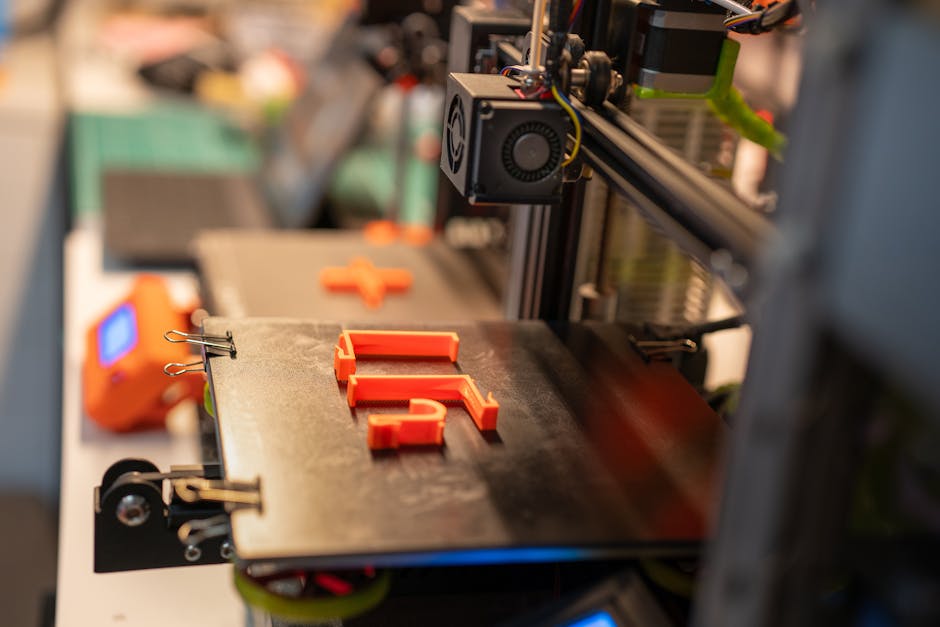Metrology in Manufacturing: Measuring and Controlling Precision at the Micro and Nano Scale
In high-stakes manufacturing, you rely on metrology to guaranty that every component, from microscopic gears to nanoscale coatings, meets exacting specifications and performs as intended. You use metrology to verify products meet required specifications, identifying and correcting deviations promptly. At the micro scale, techniques like optical interferometry and scanning probe microscopy analyse surface topography and nanostructures with nanometre resolution. To control precision at the nano level, you must carefully control temperature, vibration, and air quality. As you explore the intricacies of metrology in manufacturing, you’ll discover the advanced tools and techniques essential for achieving precision at the micro and nano scale.
Key Takeaways
• Metrology is crucial in manufacturing to verify product specifications, identify deviations, and ensure quality standards are met.• Advanced metrology tools like atomic force microscopy and interferometry enable precise measurement at the micro and nano scale.• Controlling environmental and instrumental factors, such as temperature and vibration, is essential for accurate measurements at the nano level.• Implementing robust quality control measures, including statistical process control, helps detect deviations and ensures precision in production processes.• Regular calibration and maintenance of measurement instruments are necessary to guaranty precision and accuracy in manufacturing.
The Role of Metrology in Manufacturing

In modern manufacturing, you rely on metrology, the science of measurement, to guaranty the quality and accuracy of your products, as it plays a critical role in every stage of production, from design to delivery.
Metrology verifies that your products meet the required specifications, and any deviations are identified and corrected promptly. This is critical in quality control, where even the slightest variation can have significant consequences.
As a manufacturer, you understand the importance of precision in every step of the production process.
Metrology helps you achieve this precision by providing accurate measurements, which enables you to make informed decisions about your products. This, in turn, helps you to maintain a smooth supply chain, where products are delivered on time and meet the required standards.
In quality control, metrology is used to inspect and test products, validating they meet the desired quality standards.
This includes measuring dimensions, surface roughness, and material properties, amongst other parameters. By doing so, you can identify any defects or deviations early on, reducing the risk of producing faulty products and minimising waste.
Measuring at the Micro Scale

As you venture into the domain of micro-scale measurement, you’re tasked with capturing precise data in the micrometre and even nanometre ranges. This level of precision is vital in micro fabrication, where the slightest deviation can have a profound impact on the final product’s performance. To achieve this level of accuracy, you’ll need to employ advanced measurement techniques and instrumentation.
| Measurement Technique | Resolution | Application |
|---|---|---|
| Optical Interferometry | 1-10 nm | Surface profiling, roughness measurement |
| Scanning Probe Microscopy | 0.1-10 nm | Surface topography, nanostructure analysis |
| Laser Interferometry | 1-100 nm | Displacement measurement, vibration analysis |
| Confocal Microscopy | 100-500 nm | Surface roughness, microstructure analysis |
When measuring at the micro scale, it’s vital to weigh the limitations and constraints of each technique. For instance, optical interferometry is ideal for surface profiling, while scanning probe microscopy is better suited for analysing nanostructures. By selecting the appropriate technique, you can guaranty accurate and reliable data that meets the demands of micro fabrication.
In micro-scale measurement, precision is paramount. Even the slightest variation can have a profound impact on the final product. By leveraging advanced measurement techniques and instrumentation, you can achieve the precision required for micro fabrication and surface profiling.
Controlling Precision at the Nano Level

By virtue of their extreme sensitivity, nanoscale measurements demand an extraordinary level of control over environmental and instrumental factors to guaranty precision. As you venture into the domain of nanofabrication, you’ll need to ascertain that your instruments and environment are meticulously calibrated to capture accurate readings.
To achieve this level of control, you’ll need to examine the following critical factors:
-
Temperature control: Even slight temperature fluctuations can substantially impact nanoscale measurements. You’ll need to maintain a stable temperature environment to guaranty consistent results.
-
Vibration isolation: Vibrations can also disrupt nanoscale measurements. You’ll need to implement effective vibration isolation strategies to minimise external disturbances.
-
Air quality control: Particulates and contaminants in the air can compromise nanoscale measurements. You’ll need to maintain a clean and controlled air environment to prevent contamination.
-
Quantum calibration: To verify the accuracy of your measurements, you’ll need to calibrate your instruments using quantum standards, which provide a precise reference point for your measurements.
Advanced Metrology Tools and Techniques

You’ll leverage advanced metrology tools and techniques to extract meaningful insights from your nanoscale measurements, building on the precise control you’ve established over environmental and instrumental factors. At the micro and nano scale, surface profiling and interferometry techniques are essential for achieving accurate measurements.
| Technique | Description |
|---|---|
| Atomic Force Microscopy (AFM) | Measures surface topography with nanoscale resolution |
| Interferometry | Analyses surface roughness and waviness using interference patterns |
| Scanning Tunnelling Microscopy (STM) | Visualises surface morphology at the atomic level |
| Confocal Microscopy | Enables high-resolution surface profiling with depth information |
These advanced metrology tools and techniques enable you to capture precise measurements of surface morphology, roughness, and topography. By combining multiple techniques, you can gain a thorough understanding of your material’s properties and behaviour at the micro and nano scale. For instance, AFM can provide detailed topographic information, while interferometry can analyse surface roughness and waviness. By integrating these techniques, you can optimise your manufacturing process to achieve precise control over material properties and performance.
Ensuring Accuracy in Production Processes

To guaranty the highest level of accuracy in production processes, manufacturers must implement robust quality control measures that can detect even the slightest deviations from specified tolerances. This is particularly vital in precision manufacturing, where tiny variations can have significant consequences.
You must consider the entire production process, from raw material sourcing to finished product delivery, to verify accuracy. This includes monitoring material variability, which can affect product performance and quality. A thorough quality control strategy should also account for supply chain disruptions, which can impact material quality and availability.
To achieve high accuracy, you should:
- Implement statistical process control methods to monitor and adjust production processes in real-time
- Conduct regular calibration and maintenance of measurement instruments to guaranty precision
- Establish clear communication channels with suppliers to verify material quality and consistency
- Develop and implement standardised testing protocols to verify product quality and performance
Conclusion
As you navigate the intricate world of manufacturing, precision is the unsung hero that separates success from failure.
Consider the example of a Swiss watchmaker, where a single misaligned gear can throw off the entire mechanism.
Similarly, in manufacturing, a miniscule deviation at the micro or nano scale can have catastrophic consequences.
By harnessing the power of metrology, you can guaranty that your production processes are as precise as a ticking timepiece, where accuracy is the only currency that matters.
Contact us to discuss our services now!
